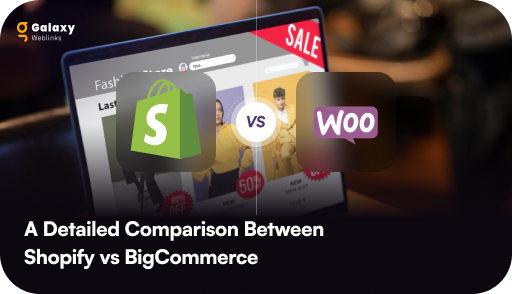Hello (Inserts your First name),
All of us have received emails/ sms notifications, social media ads, that are sharing offers and discounts on the products that we have been eyeing.
Hyper personalization takes the basic information as the starting point of its research and then gets to know you better with the help of Artificial Intelligence or AI. It collects real time information, identifies patterns, looks for reasons behind actions performed (via feedback) and then serves product recommendations, content and offers based on analysis carried out.
Understanding Hyper-Personalization

Is hyper-personalization a new concept? Not really. Hyper-personalization is like those regular personal conversations you have in your neighborhood Mom and Pop stores. You wouldn’t think of going to another shop for your grocery shopping as you know the owners well and they know your preferences, thereby assisting you in finding your favorites without even asking.
Hyper personalization is aimed at establishing the same relationship with your customers but virtually and on a wider scale. AI and Machine Learning advancements have made hyper personalization a reality now. You can now leverage these technologies to build a customer experience that leaves behind a good imprint in your users’ minds.
Consumers want businesses to understand their needs

Your customers are always in a time crunch, but also have a sizable disposable income to indulge in luxuries. They will certainly appreciate tailor-made recommendations right in their mailbox or while browsing your website. In case you still have doubts, have a look at these numbers –
- A study conducted by Accenture said that 41% of US consumers changed their brand preferences because of a lack of personalization and trust.
- In the same study, 81% of customers wished that brands put in more effort to understand them better.
- Customers now expect brands to understand their dynamic needs and respond as per the insights garnered from the real time data they collect.
Hyper-personalize your ecommerce business

Hyper-personalization revolves around AI, Machine Learning and Deep learning, social media research, surveys, and website analytics. AI and Big data usage are spread across industries. It is used by Netflix, Starbucks, Stitch Fix, Amazon, and many others.
Amazon uses data from every possible place. Be it purchase history, viewing history, saved items, average time spent on search, and shopping cart data. It also features a frequently bought together category for further assistance to customers. All this information is used to personalize the search query and even the homepage for the visitors, via predictive analysis method.
Another example is Stitch Fix. It is an online personal styling venture.
- As users sign up, they are asked questions about their styling preferences, which are then matched to the numerous stylists’ profiles on the website.
- These stylists then handpick relevant products for the users and the user has to select one product out of the curated range and pay for it.
- Feedback is requested from the customers for the products they keep, as well as return, which is then used for future recommendations.
Stitch Fix combines human and data insights to deliver maximum customizations to their customers.
In essence, collecting, combining and analyzing all the data collected will help you in building a hyper personalized experience for all your customers. We recommend that you categorize the data into micro segments. This ensures that the results, preferences and content shown is always relevant to the customers.
Mass marketing and macro segmentation fail because of heavy generalization. For example, as a clothing ecommerce platform, if you are targeting all your female customer base at once, you forget to customize as per the geographic conditions, age group, body structure and even color preferences.
Whereas if you go for micro segmentation, you can send some bright color options to your younger demographic as they are more inclined towards experimentation and are yet to discover the color that suits them vis-a-vis the older demographic.
Leverage social media to find insights into your customer needs and wants; what your competitors are doing, and keep a track of all the trends. This always comes in handy when curating content for emails, blogs, social media accounts and newsletters.
Scope of Hyper-Personalization

Every page, recommendation, content, promotions can be a part of hyper-personalization. You can start by customizing the homepage of your website.
Your search function should take into consideration any keywords used by your visitor, previous queries, buying behavior, etc for saving your customer’s time. The likeliness of conversion increase when you quickly address your customer’s query.
Product recommendations bundled with complementary product offerings are a great way to increase your sales. It’s like when you order a burger and fries at McDonald’s and the cashier asks if you would like to make it a meal with a beverage. Only a few of us can resist such an offer! Add-Ons or similar product offerings under the ‘you may like this as well’ section comes across as thoughtful suggestions and not a pushy sales tactic.
Some takeaways
- Send emails at the most optimal time for maximum engagement.
- Take the geographic conditions in mind when sending product and service catalogs.
- Personalized discounts and offers on the categories that your customer visited the most or has saved it or based on the purchase history will increase your sales conversion rate.
Hyper-personalization is not just an option! It is essential to survive in this harshly competitive online commerce space. Not only will it help you provide a frictionless experience to your customers, but it will also help you build a loyal and strong customer base. Your customers will turn into your brand advocates for all your potential customers.
Feel free to contact our experts who will assist you in building a better customer experience for your ecommerce venture.
About the Author
Vinod Khajja is an Ecommerce expert at Galaxy. He is a firm believer of AI and it’s possibilities with Ecommerce. As a Senior Project Manager he has multiple ecommerce successes under his belt.

